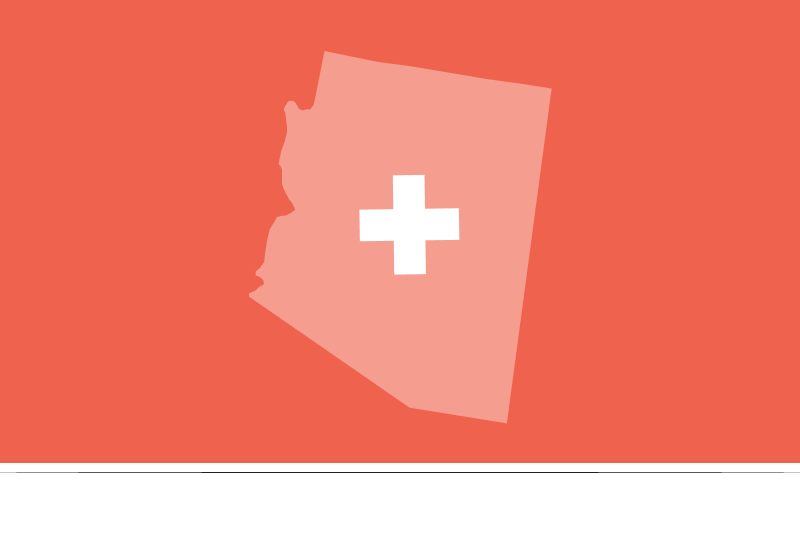How can small business owners offer great employee benefits packages?

Last updated on October 10, 2023
It’s no secret that employees look for jobs that offer great benefits. In fact, 64% of job seekers name salary and benefits packages as their top considerations when accepting a new position. Great employee benefits can attract top talent and are often a deciding factor in cases where salaries are roughly comparable.
If you’re a small business owner, you might question if you have the means to compete with the benefits offered at larger companies. We’re here to assure you there are plenty of ways that you can offer comprehensive, modern employee benefits no matter your business’ size. This guide walks you through the basics of employee benefits and top strategies to offer competitive small business employee benefits packages.
What are employee benefits?
What are employee benefits?Employee benefits refer to forms of compensation that employees receive in addition to their regular salaries and wages. Business owners typically offer a “package” of benefits to attract talented workers and promote their employees’ health and well-being.
Examples of employee benefits:
Health insurance is the backbone of most employee benefits packages. Because individual health plans tend to be expensive, employers often subsidize their employees’ health insurance and can get better rates from insurance carriers by offering a group plan.
Other examples of employee benefits include:
- Dental and vision insurance
- Employee Assistance Programs (EAPs)
- Mental health coverage
- Life insurance
- Paid time-off
- Holistic leave policies
- Telemedicine/virtual care options
- Wellness programs
- 401(k) contributions
- Equity
- Parental leave
- Flexible work hours
- Adoption and IVF support
- Child care assistance
- Hybrid or remote work arrangements
- Mileage reimbursement or parking benefits
Some businesses will also offer more creative benefits for their teams. For example, corporate giants like Airbnb and Automattic offer employee benefits like on-site meals and paid sabbaticals. But even lower-cost benefits like flexible scheduling can have an impact on your business’ ability to recruit and retain talent.
Are any employee benefits mandatory for a small business to offer?
Federal and state laws require businesses that meet specific criteria to provide mandatory benefits. Here’s a quick overview of some of these requirements.
Health Insurance
The Affordable Care Act (ACA) requires businesses with 50 or more full-time equivalent (FTE) workers to provide employer-subsidized health insurance. This mandate doesn’t apply to small businesses with 49 or fewer full-time employees.
However, employers with fewer than 25 full-time employees may qualify for the Small Business Health Care Tax Credit if they offer health benefits and pay 50% of employees’ premium costs.
Workers’ Comp
Workers’ compensation insurance ensures that employees receive fair wages, medical care, and other benefits if their job causes them to become ill or get injured. Several factors determine if a small business needs to provide worker’s comp, including the state, industry, and number of employees.
For example, Arizona requires all businesses with at least one employee to carry workers’ comp insurance. By contrast, Florida mandates workers’ comp coverage for employers with four or more employees and has specific requirements for agricultural and construction businesses.
Because workers’ comp regulations vary by state, you should research laws in your area to ensure you comply with applicable regulations.
COBRA
The Consolidated Omnibus Budget Reconciliation Act (COBRA) is a federal law that requires businesses to offer continued health insurance coverage to members and their beneficiaries after a qualifying event. Examples of qualifying events include an employee getting laid off or involuntarily having their work hours cut back.
Typically, COBRA applies to businesses with 20 or more employees that offer group health plans.
FMLA
The Family and Medical Leave Act (FMLA) requires certain employers to provide 12 weeks of unpaid, job-protected leave for qualifying family and medical events. For example, employees may qualify for this benefit if they adopt or give birth to a child, develop a serious medical condition, or need to care for an ill family member. During this leave, their employer must maintain their health benefits.
FMLA applies to small businesses that have 50 or more employees for 20 or more weeks of the year. These employees must also live within 75 miles of their workplace.
What benefits are most important to employees?
What benefits are most important?As mentioned, employer-sponsored health insurance is common in small business benefits packages. According to a recent survey by the Protecting Americans Coverage Together (PACT) campaign, 96% of employees viewed health insurance as “extremely important.”
If we treat employer-sponsored health insurance as a given, we can discuss other benefits that today’s workforce wants most.
According to a recent survey by Forbes Advisor, these are the top four benefits employees seek out, following health insurance:
- Life insurance
- Pension and retirement plans
- Mandatory paid time-off
- Mental health assistance
In-office employees also indicated that they value these benefits:
- Flexible hours
- Work-from-home options
- Employee discounts
- Professional development support
- Four-day workweek
Many of these benefits revolve around the notion of flexibility and striking a healthy work-life balance. This heightened desire for flexibility in a post-pandemic world also ties into an uptick in mental health awareness. Often, employees want employers to offer them 1) the resources they need to care for their mental and physical wellness and 2) the time and flexibility to use those resources.
Related: How offering employee benefits improves company culture
How much does offering a benefits package typically cost?
The cost of benefitsPeople often assume employers must pay a small fortune to offer competitive benefits packages, but certain benefits can be extremely affordable. According to the Bureau of Labor Statistics, private industry employers pay an average of $12.02 per hour worked for each employee’s benefits compensation.
Unsurprisingly, health insurance is one of the most significant expenses for employers and employees. Several factors affect the price of this benefit, including location, plan type, and the number of covered beneficiaries.
According to the Kaiser Family Foundation’s 2022 Employer Health Benefits Survey, employers pay an average of $6,584 for health plans for single people and $16,357 for family coverage. Workers also typically pay for a portion of their health plan, contributing an average of $1,327 for single coverage and $6,106 for family.
The survey also breaks down the average employer contribution for common types of health plans. Preferred Provider Organization (PPO) plans are the most expensive, with employers contributing an average of $6,812 for single coverage and $17,043 for family coverage. The least expensive option is High Deductible Health Plans (HDHP), which cost employers $6,152 for single employees and $15,773 for families on average.
Other benefits typically cost less than health insurance. Here’s the employer cost per hour worked for private industry workers, according to the Bureau of Labor Statistics:
- Health insurance: $3.30
- Retirement and savings: $2.22
- Vacation days: $1.56
- Supplemental pay: $1.39
- Workers’ compensation: $0.47
- Personal leave: $0.19
- Life insurance: $0.05
- Long-term disability: $0.05
Affordable benefits like life insurance have a negligible impact on small businesses’ bottom lines but can significantly improve employee satisfaction.
5 ways small business owners can offer competitive employee benefits packages
5 ways small business owners can offer competitive benefitsNow that you understand the latest employee benefits trends, let’s talk about what you can do to keep up with these trends as a small business owner.
1. Offer the most flexible working arrangements you possibly can.
If you can switch up your business model to include unlimited PTO, a flexible schedule, and the ability to work remotely — do it. Flexibility is one of the easiest, cheapest, and most coveted small business employee benefits you can offer. Only 3% of workers want to return to the office full-time, according to a recent Fortune survey.
If you can’t offer that much flexibility, think about where you can provide compromises to some degree. That could mean a hybrid work arrangement, a compressed workweek, increased PTO, or offering mental health days.
2. Partner with a modern health insurance company that includes comprehensive mental health coverage and wellness resources for your employees.
When you partner with a modern, tech-enabled health insurer that keeps up with benefits trends, they will do a lot of the heavy lifting related to benefits for you. For instance, if you can trust that your insurer is on top of modern employee benefits such as quality mental health coverage, health and lifestyle coaching, and expansive virtual care options, then you do not have to source and administer those benefits yourself. Some health insurers even offer free access to employee wellness programs and/or employee assistance programs.
Sana offers dependable, affordable health insurance to small businesses. Our network of quality providers includes an ecosystem of $0 Care Partners who offer easy access to various modern benefits, from mental wellness platforms and primary and urgent care to women’s health services, labs and diagnostics, various therapies, and more.
3. Come up with no-cost improvements you can make to your small business benefits package.
Basically, this means thinking of things you can do for free to make working for you less stressful and more enjoyable. You could:
- Implement a company-wide policy of only having meetings during a restricted time frame.
- Let your employees bring their pets to work.
- Allow employees to have their cameras off during Zoom meetings.
- Offer Summer Fridays, allowing employees to end work a couple of hours early on Fridays during the summer months.
- Implement a more casual dress code (or do away with the dress code altogether).
- Turn an unused space in the office into a yoga or meditation room.
- Organize weekly wellness events, like mindfulness sessions or nature walks during lunch.
4. Stand out by offering benefits large companies can’t easily offer.
Large companies tend to have more financial resources, but certain employee benefits become increasingly difficult to offer as a company’s employee count grows. Any benefit that involves getting the whole team together to bond over a shared activity — such as an all-company retreat, game night, party, dinner, or volunteer day — gets more challenging and expensive for companies to pull off as they grow. But these events can be incredibly fun for employees and build a strong company culture, so take advantage of them while your business is small enough to do so!
5. Ask your employees what benefits are really important to them.
Another advantage of fewer employees is that you can ensure all of their voices are heard. The best way to retain the employees you already have is to show them they’re supported and valued.
We recommend asking your employees what benefits would truly improve their quality of life and then doing whatever you can to implement the most requested benefits. You can do this by introducing an anonymous suggestion box, hosting a town hall meeting, distributing a benefits survey, or encouraging employees to share their benefits opinions with managers/HR.
What kind of administration is required for an employee benefits program?
Administering benefitsAdministering an employee benefits program can be complex and time-consuming. Small businesses often designate one or more human resources professionals to handle daily administrative tasks, such as:
- Adding beneficiaries to health plans
- Communicating deadlines to employees
- Processing claims
- Organizing wellness initiatives
Many small businesses outsource their plan management to a third-party administrator (TPA). This consultant or company manages every aspect of health plans and other employer benefits.
TPAs like Sana provide many advantages for small businesses. Sana has extensive experience in the health insurance industry and keeps up with the latest benefits trends and regulations, so they can ensure your benefits packages are competitive and compliant.
Employee benefits FAQs
FAQsEmployee benefits is a broad term that refers to any non salary forms of compensation that businesses give workers, such as worker’s comp and health insurance. By contrast, fringe benefits are typically used to describe nonessential perks that boost job satisfaction and promote work-life balance. Examples of fringe benefits include free coffee and snacks in the breakroom, flexible work hours, and discounted gym memberships.
For the most part, small businesses have the freedom to choose whether they want to offer employee benefits packages. However, federal and state laws may require certain small businesses to provide mandatory benefits, such as workers’ compensation insurance and family and medical leave. Requirements can vary based on business size, location, industry, and other factors.
An employee benefits package includes all non-wage forms of compensation that employers offer their employees. Employee benefits for small businesses may consist of health insurance, dental and vision insurance, paid time off, workplace perks, wellness programs, reimbursement for certain expenses, retirement contributions, paid leave, and more.






